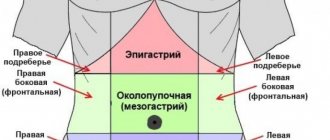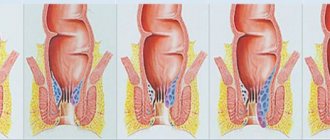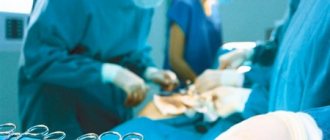Causes
There are many factors that can disrupt the smooth functioning of the intestines. Among them:
- genetic pathologies;
- unhealthy diet;
- active work of the immune system, which not only destroys harmful microflora, but also injures the intestinal wall;
- long-term use of antibiotics and some other medications;
- lack of physical activity;
- alcohol abuse;
- smoking;
- entry of pathogenic bacteria into the intestines due to consumption of low-quality foods;
- failure to comply with personal hygiene rules;
- nervous tension, frequent stress;
- infection with viruses that infect the intestines by airborne droplets;
- chemicals and poisons contained in food products or exposed to them during processing.
Types of diseases and their symptoms
The intestine has two sections: thick and thin. Some diseases can develop in both departments at once, while others affect only one of them. According to etiology, all diseases can be divided into groups:
- diseases caused by infection (dysentery);
- congenital;
- resulting from mechanical injuries;
- medicinal;
- radiological;
- parasitic (enterobiasis, ascariasis);
- toxic.
Diseases affecting the small intestine:
Eosinophilic enteritis. The reason for the accumulation of eosinophils in the walls of the organ is still not clear. Symptoms:
- pain in the navel area;
- nausea, vomiting;
- diarrhea;
- food allergies;
- sudden weight loss.
Whipple's disease. It has an infectious etiology and usually affects men over 40 years of age who have disorders of the immune system. Primary signs:
- increased body temperature;
- painful sensations in the joints;
- abdominal pain.
Diseases characteristic of the colon:
Irritable bowel syndrome. Manifests:
- bloating;
- abdominal pain;
- periodic rumbling.
Chronic colitis. Symptoms:
- pain;
- bloating;
- change from constipation to diarrhea and vice versa;
- nausea;
- decreased appetite;
- sleep disturbance;
- irritability.
Nonspecific ulcerative colitis - the formation of ulcers on the mucous membrane. Manifestation:
- bleeding;
- pain;
- diarrhea;
- general weakness.
Diseases that can develop in any of the departments: Cancer. Symptoms of cancer are caused by the growth of the tumor and blocking of the intestinal lumen. The patient is most often concerned about:
- nausea and vomiting;
- periumbilical compressive pain;
- constipation or diarrhea;
- bloating;
- the appearance of blood impurities in the stool.
Adhesive disease is the formation of adhesions between organs located in the abdominal cavity. Symptoms:
- pain;
- constipation;
- nausea and vomiting;
- no release of gases;
- bloating.
Infectious gastroenterocolitis. Usually occurs against the background of digestive disorders due to the consumption of expired or low-quality products. Signs:
- increased body temperature;
- stomach ache;
- stool disorder;
- nausea and vomiting.
Digestive disorder
Gastritis
Diarrhea
19460 November 10
IMPORTANT!
The information in this section cannot be used for self-diagnosis and self-treatment.
In case of pain or other exacerbation of the disease, diagnostic tests should be prescribed only by the attending physician. To make a diagnosis and properly prescribe treatment, you should contact your doctor. Digestive disorder: causes of occurrence, what diseases it occurs with, diagnosis and treatment methods.
Definition
Diseases of the gastrointestinal tract that cause indigestion are among the most common in the population. Signs of digestive disorders to one degree or another are observed in almost a quarter of the world's population, but the majority do not seek help from doctors and treat themselves, which in some cases threatens to develop complications.
Diseases of the digestive system can occur in childhood or adolescence and become chronic.
Types of digestive disorders
Digestive disorders can be divided into two large groups.
The first includes diseases caused by a lack of pancreatic enzymes and substances necessary for digesting food - gastric juice, bile. In these cases, characteristic symptoms are heartburn, belching, bloating, colic, and pain in the iliac region.
The second group includes disorders caused by impaired absorption processes in the intestine. These disorders are characterized by spastic pain, increased peristalsis (rumbling) in the abdomen, a feeling of fullness, unstable bowel movements (constipation or diarrhea), exhaustion, and muscle weakness.
Possible causes of indigestion
Doctors call dysmotility of the esophagus
. Pathologies of motor activity of the esophagus lead to difficulty in moving food into the stomach and, conversely, easy entry (reflux) of concentrated gastric juice onto the walls of the esophagus.
Another significant cause is functional dyspepsia
, which combines conditions caused by temporary (no more than 3 months) disruption of the stomach, duodenum and pancreas. Patients complain of pain or discomfort in the iliac region, heaviness, a feeling of fullness in the stomach after eating the usual amount of food, bloating, nausea, vomiting, belching, heartburn. The pain is characterized by frequency (on an empty stomach or at night) and rapid cessation after eating or taking medications that reduce stomach acidity.
If the pain is localized in the left hypochondrium or is girdling in nature, then problems with the pancreas can be suspected; if in the right hypochondrium, dysfunction of the liver and gall bladder can be suspected.
When examining such patients, it is often not possible to identify “organic” diseases (ulcers, tumors, pancreatitis).
Digestive problems may result from functional disorders of the biliary tract
(biliary system). They are based on a violation of synchronicity in the functioning of the gallbladder and the sphincter of Oddi, through which bile enters the duodenum. With sphincter spasm, not only stagnation of bile in the gallbladder occurs, but also disruption of the pancreas, which together leads to acute pain, which is often localized in the right hypochondrium and can radiate to the back. Attacks are triggered by eating fatty and spicy foods, cold drinks, and stressful situations. Pain in the right hypochondrium can be combined with a feeling of fullness. Characteristic symptoms also include nausea, bitterness in the mouth, bloating, and constipation.
Another cause of indigestion is irritable bowel syndrome.
- painful conditions in which pain or discomfort in the abdomen goes away after a bowel movement. In this case, stool is characterized by irregularity with a predominance of diarrhea (diarrhea) or constipation.
The causes of irritable bowel syndrome include infectious diseases, nervous stress, poor quality nutrition, consumption of large amounts of gas-forming foods, and overeating.
The main symptoms of this disease are bloating, cramping pain in the abdomen, which usually intensifies after eating and subsides after bowel movements. It is noteworthy that at night the pain stops.
With diarrhea, the number of bowel movements can reach 5 times a day, and the urge to defecate may occur after every meal. There is often a feeling of incomplete bowel movement. With constipation, the character of feces resembles “sheep’s”, consisting of small dense pellets. So-called constipative diarrhea may occur - loose stools after several days of delay.
Which doctors should I consult for indigestion?
It is important to remember that the initial symptoms of spasm and impaired motility of the esophagus most often occur in childhood (regurgitation, sudden vomiting of unchanged food immediately after eating, pain when swallowing) and require consultation with a pediatrician.
If such symptoms appear for a long time (more than a month) in an adult, you should visit a general practitioner to receive a referral for examination of the gastrointestinal tract and make an appointment with a gastroenterologist.
The treatment of functional digestive disorders, including irritable bowel syndrome, is carried out by internists, gastroenterologists and psychotherapists.
Diagnosis and examinations for digestive disorders
If a disease of the esophagus is suspected, fluoroscopy is prescribed, which can reveal a violation of the passage of barium suspension into the stomach and dilation of the esophagus. To exclude organic lesions of the esophagus, esophageal manometry and esophagoscopy are performed.
Diagnosis of functional dyspepsia usually involves a clinical blood test; blood chemistry; stool occult blood test; C-urease test for diagnosing Helicobacter pylori infection; gastroduodenoscopy for the purpose of visually assessing the condition of the stomach wall and excluding its ulcerative lesions and tumors; Ultrasound of the liver, gallbladder and pancreas to clarify their condition.
Who treats
If signs of intestinal diseases appear, you can seek help from the following doctors:
- Gastroenterologist. It will help if there are problems with the gastrointestinal tract.
- Proctologist. He treats diseases affecting the rectum and colon, as well as pathologies associated with the anus.
- Oncologist. He is a specialist in intestinal tumors.
- Surgeon. His specialization is inflammatory processes in the cecum and surgical intervention, if indicated.
How should hemorrhoids be treated?
We found out which doctor treats hemorrhoids, now we have to find out how this disease can be cured today? Only a qualified doctor can prescribe adequate, timely, modern treatment. In practice, there are no absolutely identical cases; each patient has certain symptoms, aggravated by other proctological problems and chronic diseases, so treatment is prescribed strictly individually, depending on the nature of the process and the stage of hemorrhoids. Today, in addition to traditional surgical and drug treatment, there are such modern methods of treating hemorrhoids on an outpatient basis as:
- sclerotherapy,
- photocoagulation of hemorrhoids,
- application of latex rings - ligation
- Abroad, only a quarter of patients undergo surgical treatment, and the remaining 75% of patients undergo minimally invasive, painless treatment for hemorrhoids.
Author:
Selezneva Valentina Anatolyevna physician-therapist
Diagnostics
Investigations necessary for a correct diagnosis:
- Blood test for hemoglobin. It can be used to determine the presence of bleeding or cancer.
- Analysis of stool for blood impurities.
- Scraping Will help determine the presence of helminthic infestations.
- Colonoscopy. Allows you to identify all intestinal problems and their locations.
- Flexible sigmoidoscopy. Colon examination.
- Upper endoscopy. Used to examine the esophagus and stomach.
- Irrigoscopy. Study using a contrast agent.
- Fibrogastroscopy. Allows you to identify chronic gastritis, ulcers and other stomach diseases.
- Radiography.
- MRI.
- CT.
- Ultrasound.











